The Group on Earth Observations (GEO) held its annual symposium online from 21 to 24 June 2021, with the aim to strengthen partnerships across the GEO Work Programme of Activities. Three sessions focused on ocean observations, two of which were organised by GEO’s Blue Planet Initiative:
- Ocean and Climate Plenary Session focused on the complex interactions between oceans and climate, along with the impacts of other pressures on ocean health, including pollution and harvesting of marine life, as well as on adaptation and mitigation action needed to address them.
- Building a community to address the challenge of marine debris: The session reviewed the role Earth observations in providing evidence of marine debris and its devastating impacts and presented the Marine Debris Virtual Community Centre. This session builds on from GEO Blue Planet’s side-event on marine debris across the Atlantic Ocean during the All-Atlantic 2021 Conference in early June 2021.
- GEO and the Ocean Decade explored how best GEO can support programmes of the UN Decade of Ocean Science for Sustainable Development and presented six Ocean Decade programmes with a strong link to GEO Blue Planet objectives (ForeSea, CoastPredict, Marine Life 2030, Observing Together, ObsCoDe and Digital Twins of the Ocean). GEO’s Blue Planet Initiative will lead engagement with the IOC of UNESCO in close coordination with relevant GEO flagship programmes, initiatives, regional nodes & community activities to contribute to the Ocean Decade.
As GEO’s ocean and coastal arm, GEO’s Blue Planet Initative works to link ocean and coastal observations with societal benefit, and its EU coordination is facilitated by the EU4OceanObs Action. The EU coordinator currently leads/co-leads GEO Blue Planet working groups on Marine Litter, Sargassum, Fisheries and Oil spill.
To read the full article on the GEO Symposium 2021 sessions related to using ocean observations to address societal challenges, click here.
“Oceans are an essential consideration under the UNFCCC and the Paris Agreement. GEO can contribute to data and climate service for preparation, monitoring, reporting and verification of national adaptation plans, implementation of nationally determined contributions and measuring long term progress including through the global stocktake. By understanding the policy process, the binding requirements, and the different implementing mechanisms of the Paris Agreement, and discussing the needs at national level, GEO Blue Planet and the other GEO initiatives/flagships will be in a position to provide the Earth observations necessary for delivering the required climate services and indicators,” highlights Samy Djavidnia (European Maritime Safety Agency)




